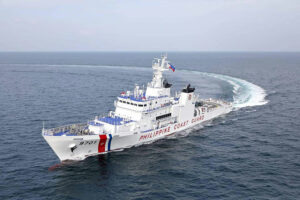South Korean military wares, tech transfer to boost PHL defense
MANILA should push for the acquisition of more South Korean military jets, frigates, and an increase of technology transfer with Seoul to boost the Southeast Asian nation’s defense posture amid tensions with China, according to security experts.

By John Victor D. Ordoñez, Reporter
MANILA should push for the acquisition of more South Korean military jets, frigates, and an increase of technology transfer with Seoul to boost the Southeast Asian nation’s defense posture amid tensions with China, according to security experts.
“We hope for the technology transfer from South Korea so that we can build our own offshore patrol vessels which would be beneficial to the Philippine defense industry,” retired Major General and former spokesperson of the Armed Forces of the Philippines Restituto F. Padilla, Jr. told reporters on the sidelines of a forum on the unification of the Korean Peninsula.
This comes amid growing tensions between the Philippines and China over disputed areas of the South China Sea, including Scarborough Shoal, one of Asia’s most contested features.
China claims almost the entire South China Sea, a conduit for more than $3 trillion of annual ship-borne commerce. The Permanent Court of Arbitration in 2016 said China’s claims had no legal basis, a ruling Beijing rejects.
In October, South Korean President Yoon Suk Yeol met with Philippine President Ferdinand R. Marcos, Jr. and vowed to pursue deeper cooperation between their coast guards.
Both leaders agreed to uphold an international rules-based order, including on safety of navigation in the South China Sea, with Seoul vowing to take part in the modernization program of the Philippine military.
“The thing is, the crucial aspect is to gain the capacity to effectively use them (military equipment) and to have sustainability,” former Philippine Navy Flag Officer in Command Alexander P. Pama told reporters at the same event.
“It has to be in conjunction with whatever strategy we have, and the next thing is our capacity to maintain it.”
The Chinese Coast Guard on Monday said in a statement that it had taken “necessary control measures” against an “illegal gathering” of Philippine vessels in disputed waters of the Iroquois reef in the South China Sea.
This followed the China Coast Guard’s confirmation that it conducted patrols around the Scarborough Shoal, Reuters reported last week.
Reports of an alleged harassment of Filipino fishermen by a Chinese Navy helicopter have also prompted the Philippine Coast Guard to deploy two of its vessels to Rozul Reef, it said on Monday.
At the forum, Jae Woo Choo, a professor of Chinese foreign policy at Kyung Hee University in South Korea, said a multilateral coalition between the Philippines, Japan, the United States is likely to continue flourishing amid China’s growing assertiveness in the waterway.
“We are in the same shoes, we cannot defend our own waters, our own airspace independently and on our own feet,” he said.
“This is where the coalition is called upon and this is where Japan has also shared concern very much.”
The Philippine Senate Committee on Foreign Relations in November moved to endorse Manila’s Reciprocal Access Agreement (RAA) with Tokyo to the chamber’s plenary, as the deal aims to boost interoperability between their troops amid tensions with China in the South China Sea.
On Tuesday’s plenary session, Senator and Foreign Relations Committee Chairperson Maria Imelda R. Marcos sponsored the RAA treaty before the floor, citing the need for the Senate’s concurrence to ensure Manila has a credible defense posture.
Both countries signed the deal in July to ease the entry of equipment and troops for combat training from Japan.
The Philippines has a visiting forces agreement with the US and Australia. Tokyo, which hosts the biggest concentration of US forces abroad, has a similar deal with Australia and Britain, and is negotiating another with France.
“Because after all, what is being defined are rules that are made by the world itself so that there will be order in the world,” Mr. Padilla said.
China and the Philippines have been at loggerheads over confrontations near disputed features in the South China Sea, with Manila accusing China’s coast guard of aggression and Beijing furious over what it calls repeated provocations and territorial incursions.













